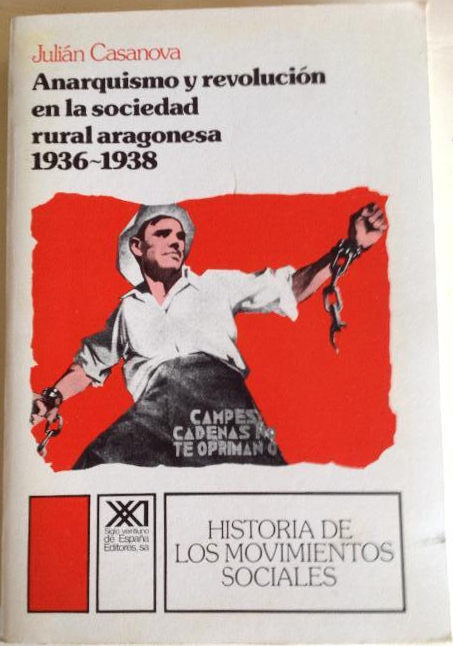Until relatively recently, there has been little scholarly attention paid to the anarchist contribution to the Spanish Civil War in a positive sense. Anyone who has read general histories of the civil war period will be familiar with the trope of the anarchists in Spain either as hopelessly idealistic dreamers or, paradoxically, as bloodthirsty butchers whose only real input on the course of the war was to sow terror in the rearguard.
These caricatures were of course never wholly representative of the scholarship on the anarchists in Spain, but they maintained a certain mythical quality for a number of decades after the war’s end in 1939. In the last twenty or so years, however, there has been something of an ‘anarchist renaissance’ in civil war historiography, with increased attention paid to their contribution from both anarchists and non-anarchists. This article[1] will seek to give a (necessarily curtailed and imperfect) summary of the main trends in anarchist historiography on the civil war from its end until the present day.
Immediately after the Republican defeat in 1939 there were few ‘mainstream’ academic histories that sought to defend the anarchists in Spain or to assess their behaviour with any real depth. Francoist historians portrayed the Confederación Nacional del Trabajo (National Confederation of Labour, CNT) and Federación Anarquista Ibérica (Iberian Anarchist Federation, FAI) as essentially evil due to their anticlericalism, symbolised by the widespread murder of clerical figures and burning of churches in areas controlled by anarchists. They also made little attempt to differentiate between the different Republican groupings e.g. left republicans, communists, socialists, anarchists, and Catalan and Basque nationalists. For Franco and his defenders, Reds were Reds.
Liberal and Republican histories attempted to defend the democratic nature of the Second Spanish Republic and to downplay the extent of the achievements of the anarchists and other revolutionaries, such as the Partido Obrero de Unificación Marxista (Workers’ Party of Marxist Unification, POUM) and the left wing of the Unión General de Trabajadores (General Workers’ Union, UGT). The anti-revolutionary tendencies within the Popular Front condemned these revolutionary experiments (characterised by the collectivisation of land and factories, workers’ control of industry, and the preponderance of revolutionary militias over the traditional Republican Army) as counterproductive (or treacherous) in the ultimate fight against fascism. The Cold War was an important backdrop in these polemics, with those critical of the Republic keen to paint it as a satellite state of the Soviet Union (the USSR gave limited aid to the Republic during the period). Those favourable to the Republican cause were loath to acknowledge the existence of a robust revolutionary movement committed to the ultimate overthrow of the state and of capitalism.


